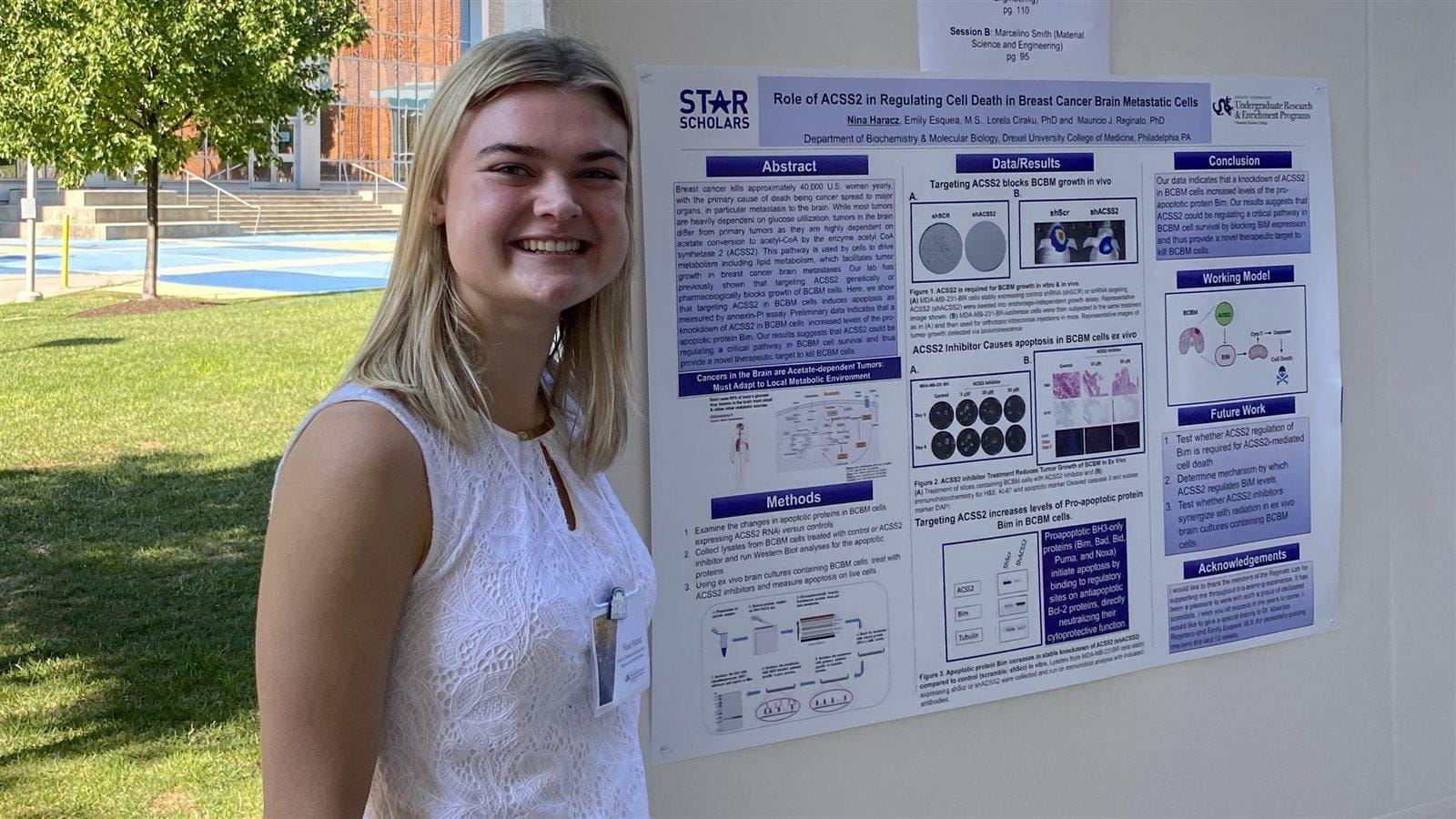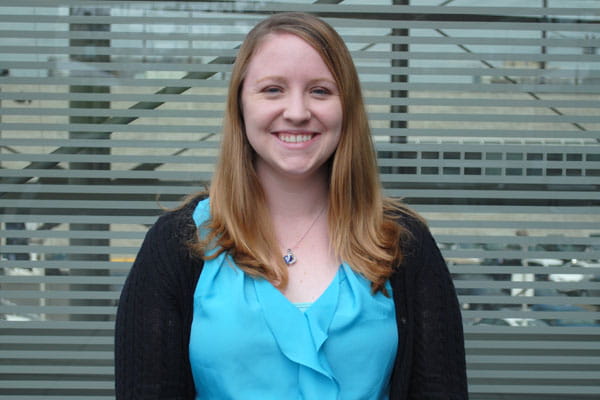How One Student Created a Path for Aspiring Women Engineers


Josa Hanzlik has always been hands on.
The biomedical engineering student said when she was 6 years old she would take VCRs apart and put them back together with her father, a mechanical engineer.
It’s now 22 years later and she’s still taking things apart and improving them.
The fifth-year PhD student in the School of Biomedical Engineering, Science and Health Systems is studying ways to advance implants for humans at Drexel University. Hanzlik and her colleagues analyze why hip or knee replacements fail and determine possible improvements.
Her goal is to conduct this research by using a computer model of an implant, testing it without having to put it in someone’s body.
The Whitaker Fellowship will help the 28-year-old do just that.
The scholarship, which was recently awarded to Hanzlik and three other Drexel students, sends biomedical engineers abroad for a year to take classes or conduct research in another lab.
When Hanzlik ventures to the Netherlands in April 2014 to conduct this research, she will leave a remarkable path for other aspiring women engineers to follow.
In September 2010, Hanzlik founded the Drexel Graduate Women in Science and Engineering group. Her mission was to create a supportive outlet for graduate women in science and engineering programs.
“We really started off as something where we’d have seminars or we’d have coffee chats and we’d talk about why there aren’t a lot of women in engineering and science,” she said. “When you have a supportive environment which includes other mentors or other females going through the similar journey, that really helps.”
Hanzlik didn’t want to just help women in college, she also wanted to leave her mark with young girls in the community. She learned this through volunteering at Girl Scout Science Saturday, a program then under the leadership of College of Engineering Associate Professor Alisa Morss Clyne. Specifically, Hanzlik wanted to reach girls between 10 and 14, the age when many decide math isn’t for them, she said.
During the Science Saturday program’s third year, she and other DGWISE members took it over.
Under Hanzlik’s leadership, it has evolved to be a three-week-long Saturday program lasting from 9 a.m. to 2 p.m. DGWISE volunteers instruct the young student attendees with workshops in science, math and engineering.
“It’s interesting to watch,” Hanzlik said. “They don’t notice they’re doing these things, but they end up building a prototype, giving feedback to other groups and they end up doing a lot of things engineers do in a normal setting.”
Hanzlik wants the Saturday program to empower the young girls to believe they can do anything.
“That’s the end goal. We’re not trying to get every girl to be a scientist or engineer, the whole point is that we want them to know that they can do whatever they want and go for it,” she said.
Hanzlik recently presented two papers describing how she started DGWISE and some of the outreach her group has since done.
“The idea was to write papers that girls at other colleges could take and start their own group or run their own outreach program,” she said. “Because it’s not just about Drexel, it’s got to be a wider approach.”
This year, Hanzlik stepped down from the board of DGWISE because, she said, “the whole point is to create a group that is self-sufficient; you want it to continue on after you leave.”
“It’s exciting for me because it’s continued on,” Hanzlik said.
In This Article
Drexel News is produced by
University Marketing and Communications.